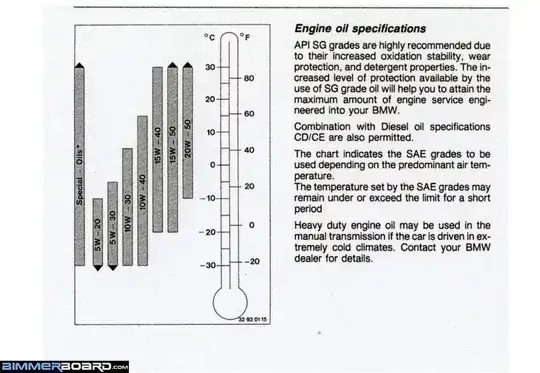I've got an older car with ~170k miles on it. I typically run a 3-5k miles or 6 months oil change interval, which pretty much always ends up at the 6-month limiter. I do this interval so I can run more viscous oils in the summer and less viscous oils in the winter.
I send a sample of my oil for analysis at every change. I've found that the biggest limiter to my oil life is not the additives being consumed or the oil oxidizing/changing viscosity, but rather particulates from the wear on an older engine.
I might not extend my oil change interval because the savings will be rather minimal, but I would like to know if anyone has experience with changing only the oil filter, not the oil itself, and how it has affected performance, wear, and service intervals.
EDIT: While I am seeking subjective answers regarding perceptions from replacing the oil filter without changing the oil itself, I am adding some structure to help with providing quantitative data as well.
Regarding performance, if anyone has normalized dyno tests comparing wheel horsepower over time between oil changes, and over time between oil changes with a filter replacement, that would be appreciated.
Wear can be discussed with either oil analysis results (ex. metal ppm) or microscopic analysis of wearing surfaces, such as cylinder walls, piston rings, bearings, valve guides, etc.
Lastly, service interval is pretty intuitive, but data backing extended service intervals would help. For example, if the oil change interval was 5000 miles, but with a filter replacement, analysis shows similar results with a replacement at 4000 miles and an oil change at 8000 miles, then the service interval was extended by 3000 miles (8000 vs 5000).
EDIT: As requested, I am posting a link to my most recent oil analysis report from Blackstone Labs. I am unaffiliated and I am not providing an endorsement for their services, simply adding information requested in a comment.
